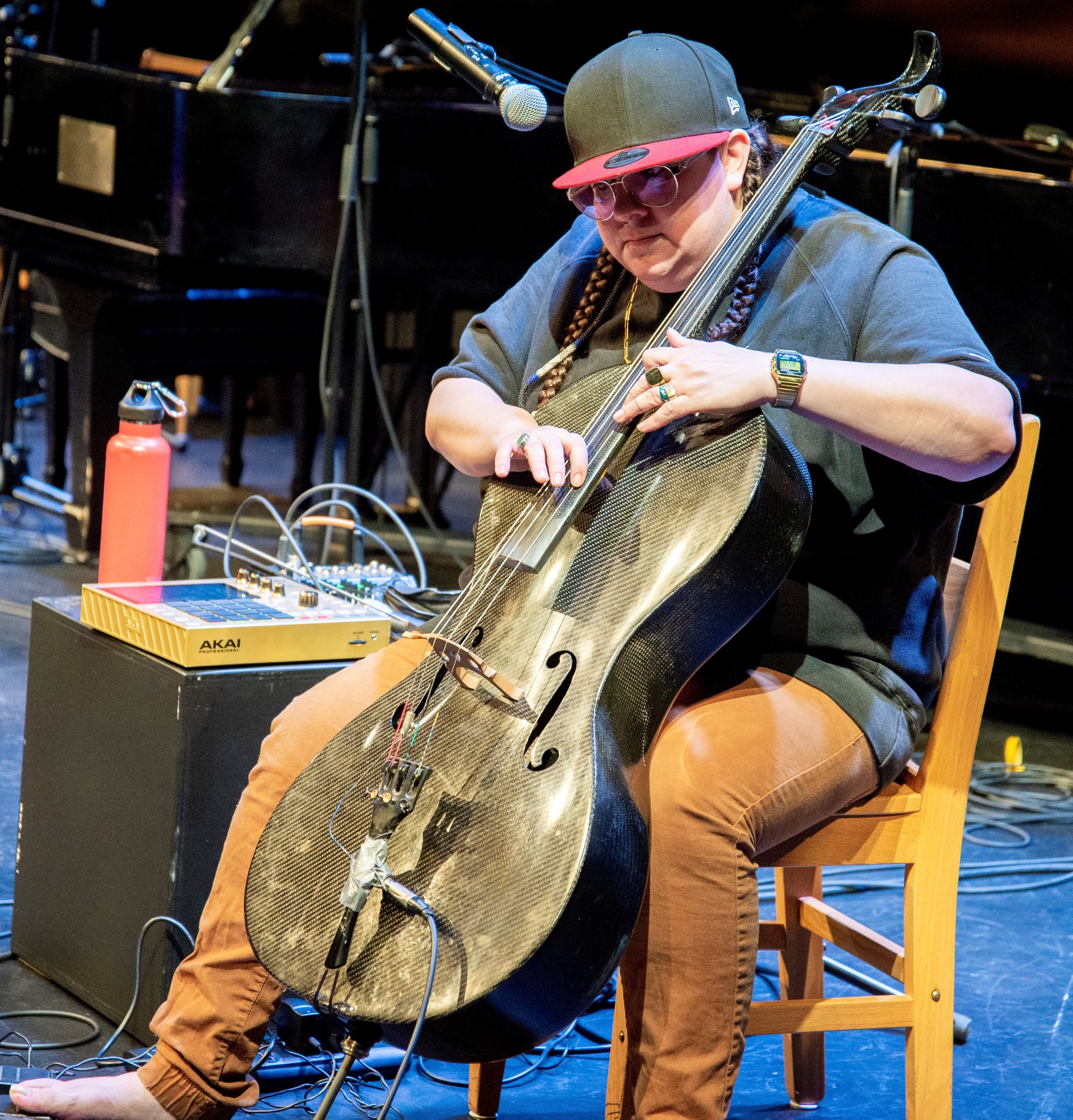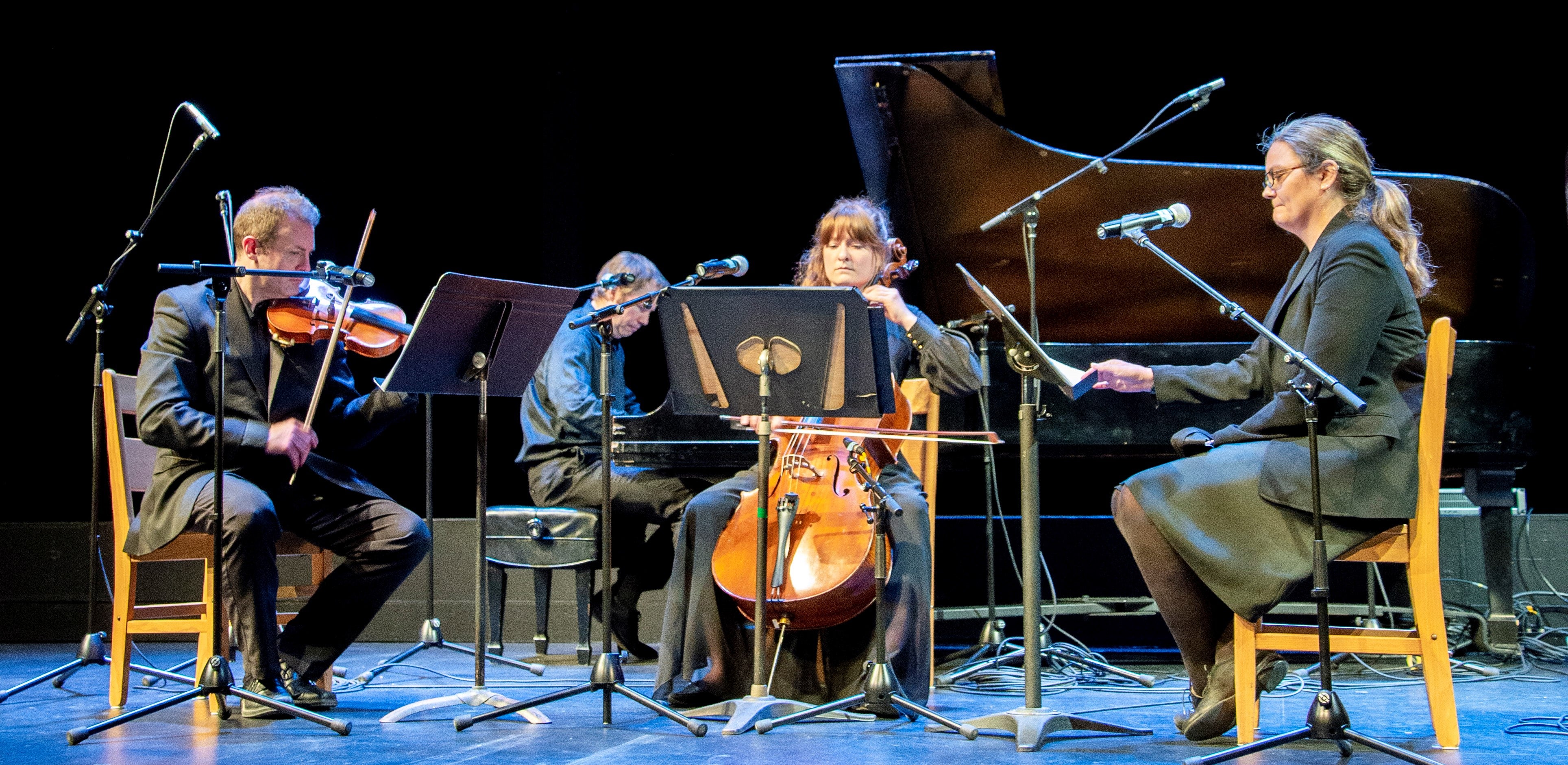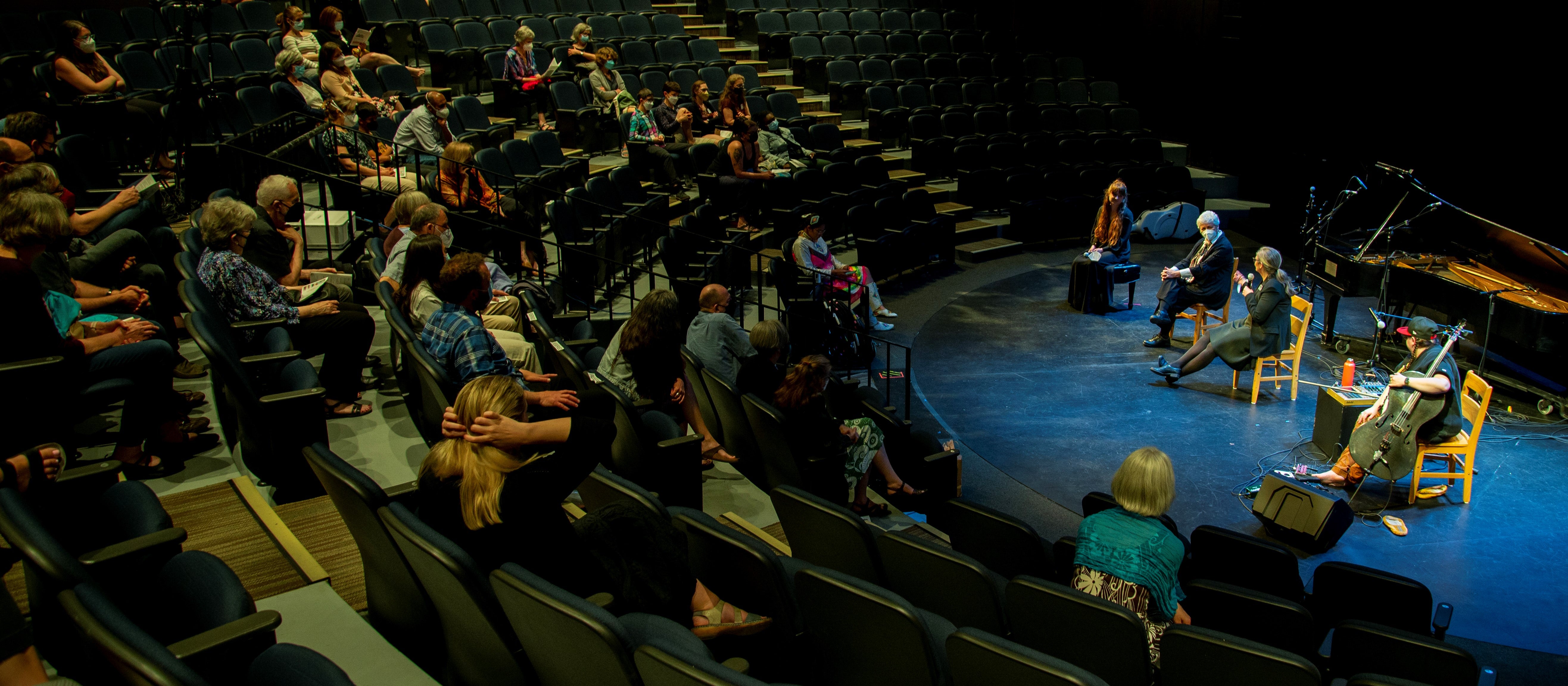Last month, the Theatre of the Arts at the University of Waterloo was brimming with thrumming beats, haunting voices, layered melodies, and a unique blend of electronic cello and traditional Indigenous music. As part of the Indigenous-Mennonite Encounters conference organized by Conrad Grebel University College, Indigenous and Mennonite musicians offered a concert that addressed relationships, beauty, nature, hope, and betrayal.

The Andromeda Trio, a Waterloo-based musical group, used grants from Canada Council for the Arts and Region of Waterloo Arts Fund to commission a new work by Grebel Music Professor Karen Sunabacka. As a composer, Sunabacka often finds inspiration from her Métis and mixed European heritage, and her new piece explores the relationships between Mennonites and Métis in Treaty 1 Territory. Miriam Stewart-Kroeker, the cellist in the Trio, is a descendent of one of the first Mennonites in Manitoba in the 1870s. Sunabacka is of English Métis descent and had an ancestor elected to the Council of Forty who worked with Louis Riel to negotiate the terms for Métis in the Manitoba Act in 1869.
The commissioned piece, “The Place Where the Creator Rests,” includes spoken voice, piano, violin, and cello. The piece begins with a brief history that highlights the values of the two peoples – the Métis in the Red River Settlement and the Mennonites in Europe. The middle of the piece then looks at the relationship between the two groups when they first encountered each other in the 1870s as Canada was expanding into the West. The final movement focusses on relationships and ways to move forward. Weaving together quotes, stories, and music, the piece shares the hopes, dreams, sorrows, and betrayals of these communities in what came to be known as Manitoba – the place where the Creator rests.
“Composing the piece and working with my mom, Joyce Clouston, on the text, took me through a journey of discovery” explained Sunabacka. “I was discovering things that made me angry and that led me to re-evaluate my relationship with, and feelings about, Mennonite friends and institutions, Canada and the systems that make this country, England, and colonialism. Exploring this material in detail taught me that the history of Canada is messy and if we want to move towards reconciliation (if that is even possible) we all need to look deeply at this history with honesty and courage. I am grateful that my Mennonite friends and colleagues have been so supportive of the piece and of this process.”

The concert also featured a new composition for choir titled “kȃ-nîmihitocik: They Who Are Dancing” by Juno-nominated cellist and composer Cris Derksen. “I wanted to write a piece that spoke to both my Mennonite and Cree heritage,” Derksen explained. “A commonality for them is the cold winter nights in Northern Alberta that bring the dancing northern lights with them. The common Cree story is that the northern lights are our ancestors – the ghosts are dancing. They are celebrating and welcoming in new spirits to join them.” The piece was commissioned for the conference by Grebel, with support from the Henry A. and Anna Schultz Memorial Fund.
A special choir performed “kȃ-nîmihitocik” and several other pieces, directed by Grebel Music Professor Mark Vuorinen. They sang “Ambe,” a song of welcome in Ojibway, which was gifted to Andrew Balfour by traditional drummer and singer Cory Campbell, and “In beauty may I walk” by composer Jonathan Dove, which is a setting of a Navajo prayer. The choir finished with “I lost my talk” by local composer Jeff Enns, based on a poem by Rita Joe, which shows hope amidst the shattered lives of residential school survivors and their families.

Cris Derksen ended the concert with a memorable solo segment that combined Indigenous and urban elements using loop pedals, a drum machine, and her electric cello. Accompanied by a hoop dancer, Derksen’s unique sound captivated the audience. Her music has been described as genre-defying, with “melodies that are plaintive but catchy, growing in number as the song progresses. These hooks repeat like echoes, part of a thick mixture yet distinct within it.” Originally from Northern Alberta, Derksen comes from a line of chiefs from NorthTall Cree Reserve on her father’s side and a line of strong Mennonite homesteaders on her mother’s side.
The Indigenous-Mennonite Encounters in Time and Place conference took place May 12-15, 2022 at Conrad Grebel University College at the University of Waterloo. This academic conference and community education event offered stories and analyses of encounters and relationships between Indigenous peoples and Mennonite settlers from point of contact to the present. The intent was to advance understanding on the part of Mennonites and other interested participants of their colonial histories, and to advance reconciliation and bring justice to Indigenous-settler relations. The event comprised academic presentations, community storytelling, artistic offerings, and both Indigenous and Mennonite ceremony in a time of listening, conversation, and silence.